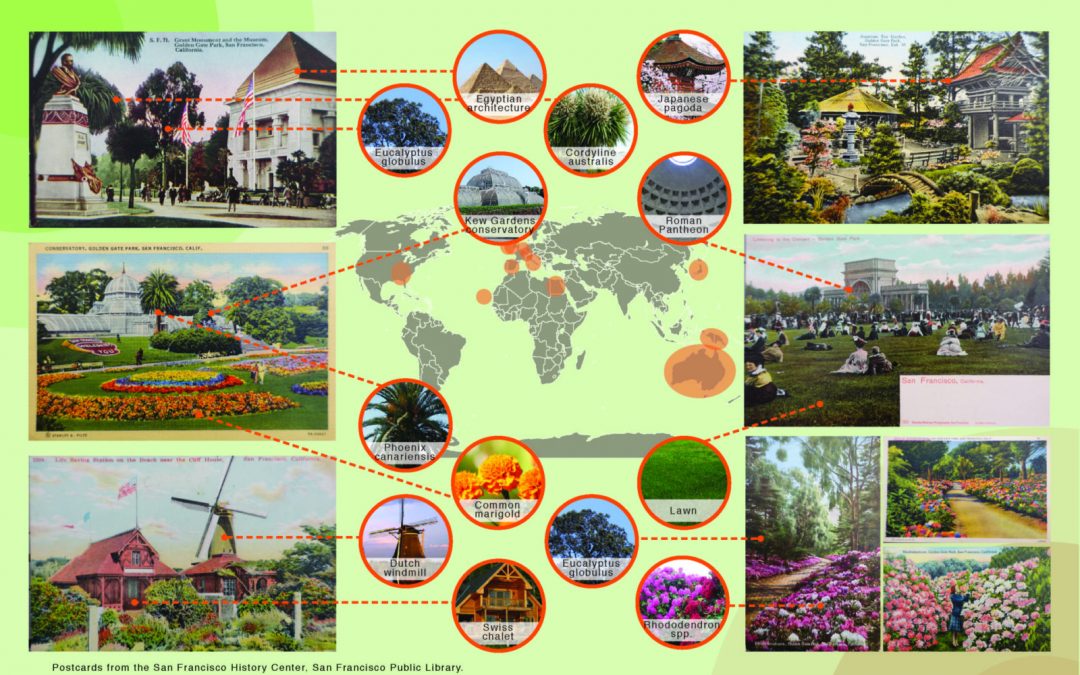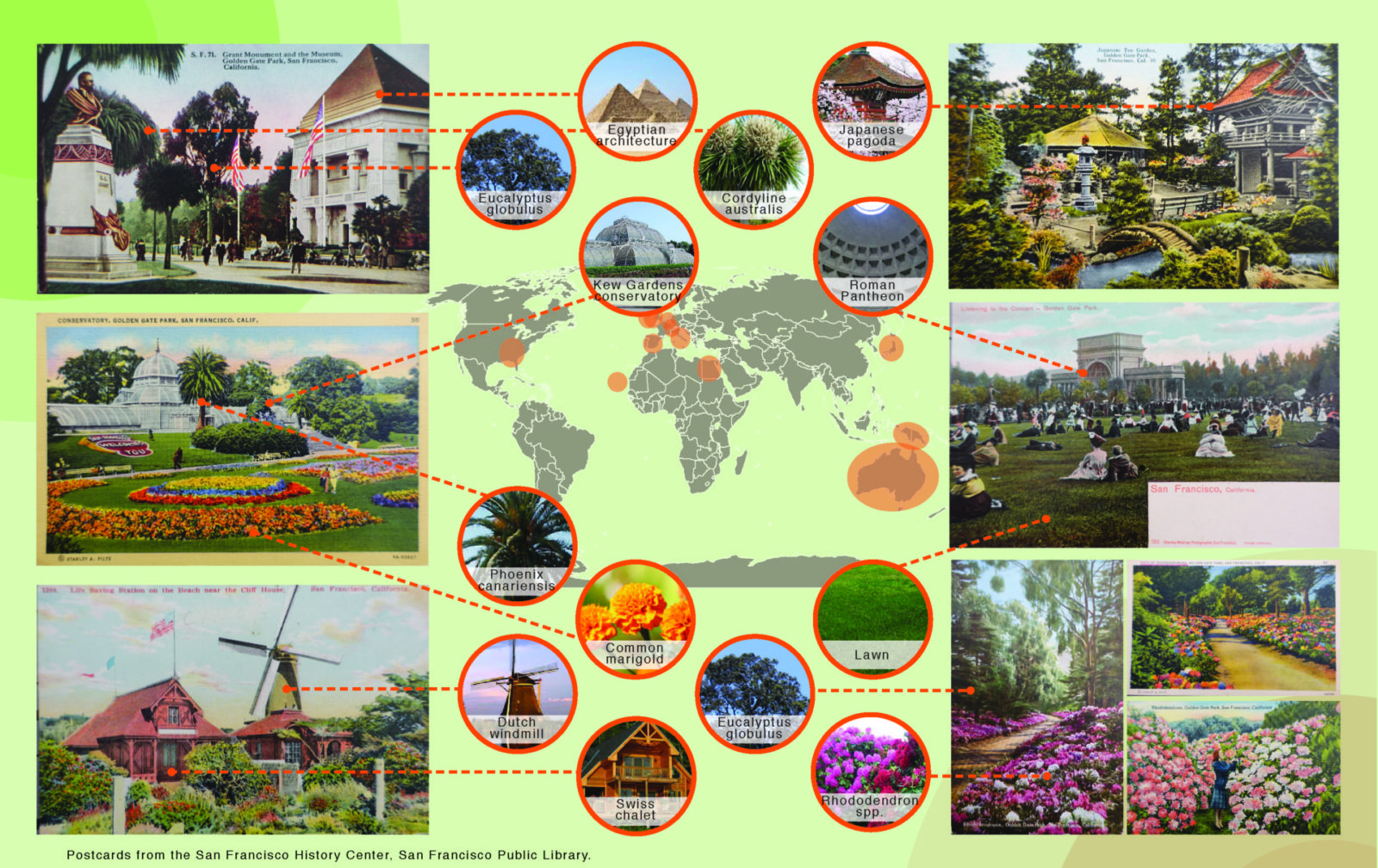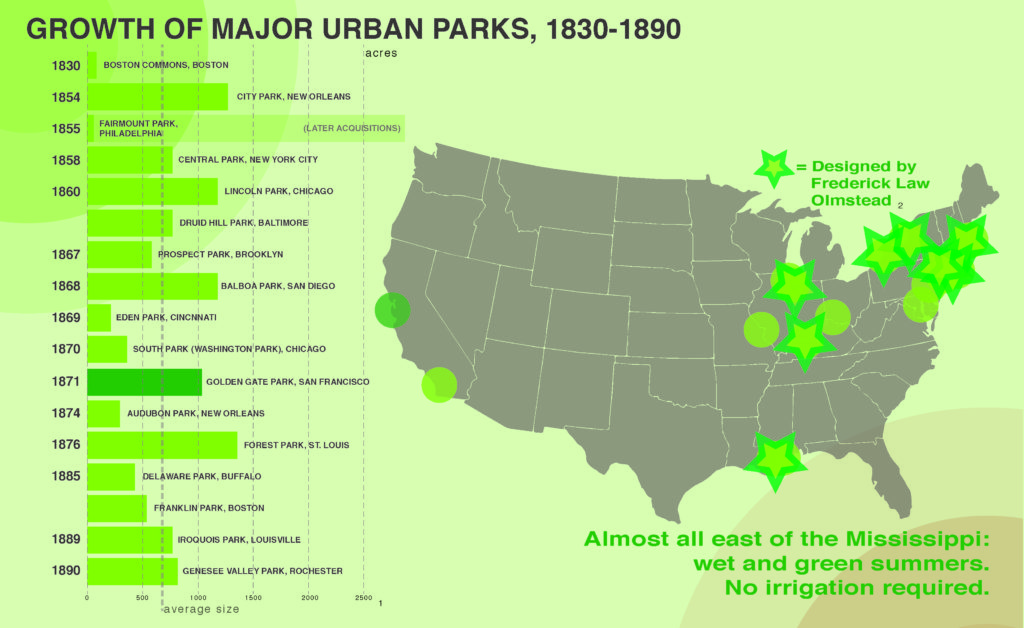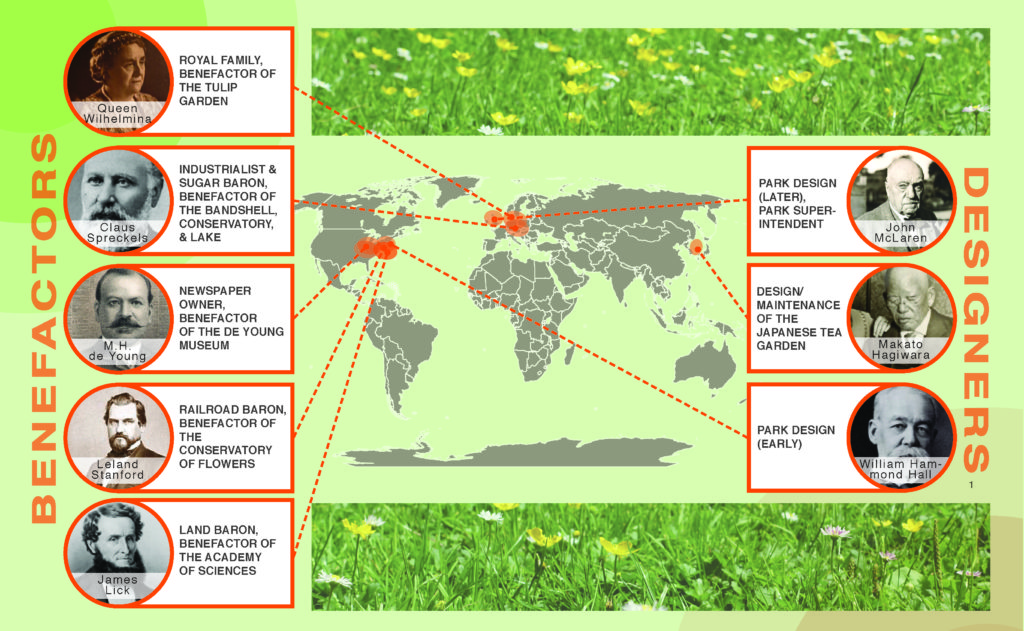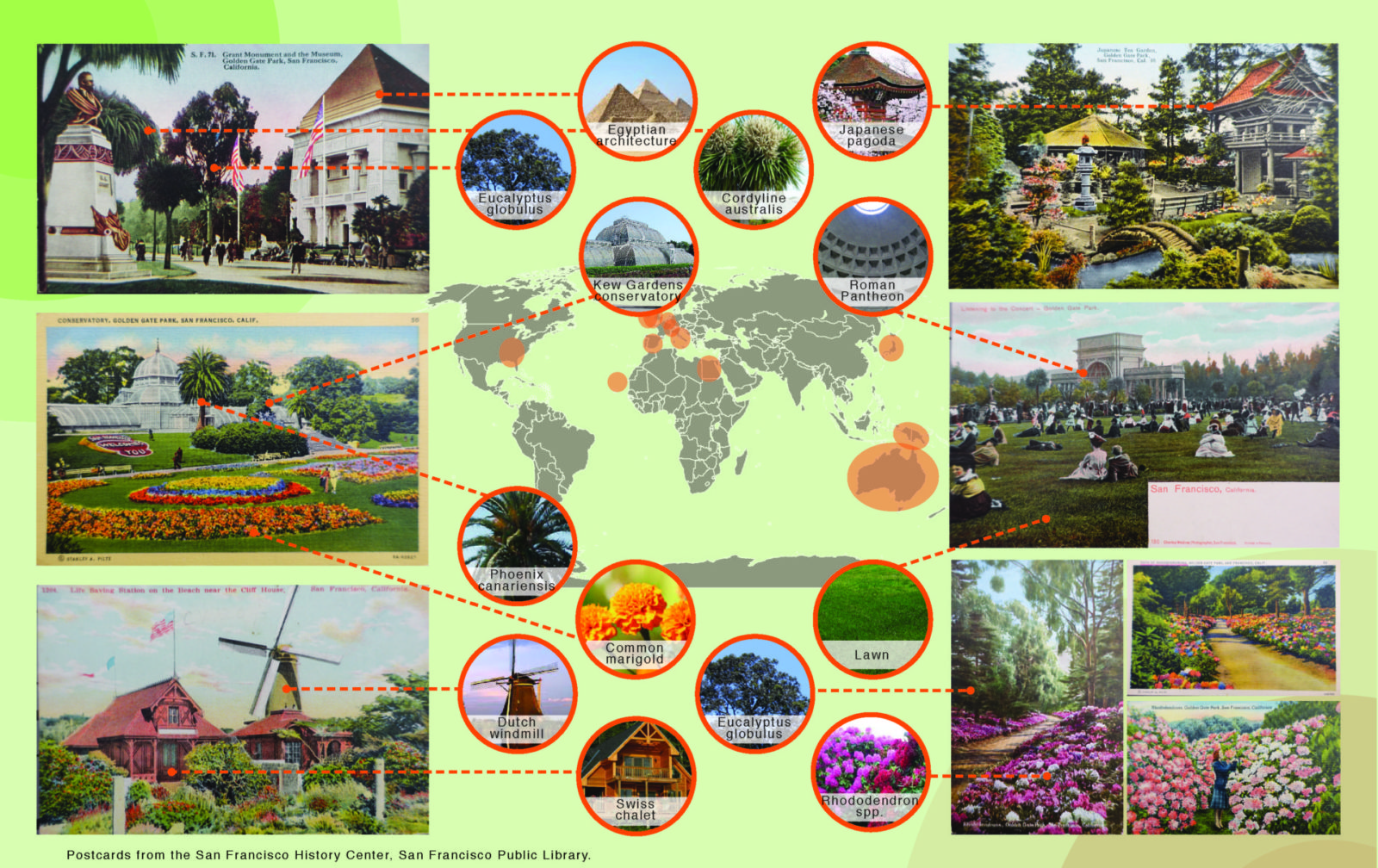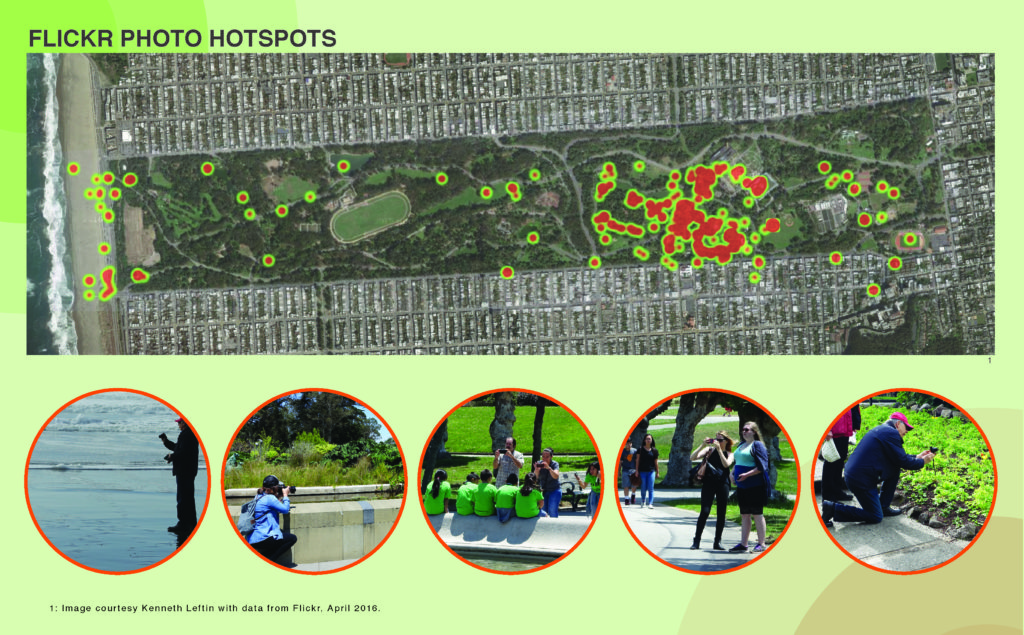Josselyn Ivanov (MDes ’16) receives the 2016 Thesis Prize, awarded by the faculty of the Master in Design Studies Program.
Ivanov’s theis titled Un-Greening Golden Gate Park explores San Francisco’s Golden Gate Park as a case that exemplifies the state’s problematic relationship with greened landscaped. Built on top of sand dunes in the 1870’s, designer William Hammond Hall closely followed the plan of New York’s Central Park, creating a thousand-acre landscape of meadows and forests. But in the West, summer irrigation is all that keeps lawns from blowing away. Today, the parks department adds the equivalent of about fifteen inches of rain per year through irrigation – essentially replication Seattle’s annual rainfall. That water, historically drawn from the unrenewable aquifer below the city, will soon be supplied by a massive reverse-osmosis recycled water treatment plant. An ethical dilemma emerges: even if irrigation water can be found, or created, should it be used to perpetuate an unsustainable nineteenth-century landscape aesthetic?
As the premier urban park in Northern California, Golden Gate Park sets up expectations than an English garden aesthetic can and should exist in California’s arid climate. And by rendering the costs of this aesthetic invisible, it perpetuates the root cause of the state’s drought: the belief that California’s landscapes can be “reclaimed” and turned green. Flipping that assumption, and arguing that this great public space can change incrementally and thereby teach new ideals of beauty, un-greening Golden Gate Park would dramatically and beneficially impact California’s relationship with water.

